- Home
- About ANT
-
Products
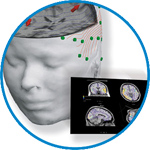
asa
asa is a highly flexible EEG/ERP and MEG analysis package with a variety of source reconstruction, signal analysis and MRI processing features.
.jpg)
eego mylab
The new frontier in multimodal brain research. With up to 16 kHz sampling rate, 256 EEG channels and unique software features, eego mylab gives you an unprecedented in-depth understanding of the human brain.
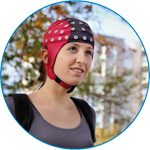
eego sports
eego sports offers complete freedom to collect high-density EEG data, bipolar EMG signals, and a variety of physiological sensor data, wherever and whenever required, with publish quality data in less than 15 minutes!

waveguard net
The waveguard net sets a new standard for research applications requiring high-density EEG data acquisition with quick preparation time, high flexibility, and subject comfort.
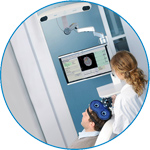
visor2
Our new and upgraded visor2 solutions integrate all the latest technologies for navigated rTMS, dual-coil navigation support, EEG-TMS recordings and pre-surgical evaluation for the highest quality in research and clinical procedures.

powerMAG ANT
The PowerMAG ANT 100 rTMS stimulator is designed for the specific needs of high-end TMS applications. Powerful high-frequency TMS as well as high precise single pulse and repetitive pulse protocols are combined in one single device.
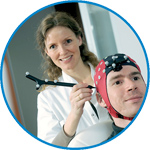
xensor
xensor offers the solution for digitization of 3D electrode positions. xensor takes care of the whole procedure; it records, visualizes and stores positions acquired with a dedicated digitizer.

waveguard original
waveguard original is the cap solution for EEG measurements compatible with fMRI, MEG and TMS system. Use of active shielding guarantees performance in even the most demanding environments.
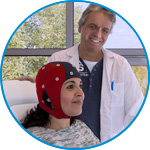
waveguard connect
waveguard connect EEG caps are a perfect match for hospitals and institutes aiming at reliable EEG, maximum uptime and great patient comfort! For optimal signal quality, the electrodes are made of pure, solid tin.
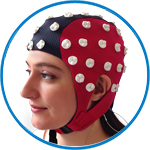
waveguard touch
waveguard touch is a dry electrode EEG cap. The unique Ag/AgCl coated soft polymer electrodes provide stable, research-grade EEG signals while maintaining subject comfort. The combination of these innovative dry electrodes and the industry-leading waveguard cap makes waveguard touch the best solution for dry EEG.
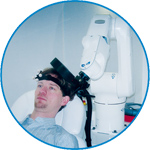
smartmove
smartmove allows planning of a complete TMS session ahead by defining stimulation sites based on anatomical MRI information and functional information like fMRI, PET or EEG/MEG.
Stay - References
- Support
- Events
- News
- Contact Us
You are here
Orthographic familiarity, phonological legality and number of orthographic neighbours affect the onset of ERP lexical effects
Orthographic familiarity, phonological legality and number of orthographic neighbours affect the onset of ERP lexical effects
Background: It has been suggested that the variability among studies in the onset of lexical effects
may be due to a series of methodological differences. In this study we investigated the role of
orthographic familiarity, phonological legality and number of orthographic neighbours of words in
determining the onset of word/non-word discriminative responses.
Methods: ERPs were recorded from 128 sites in 16 Italian University students engaged in a lexical
decision task. Stimuli were 100 words, 100 quasi-words (obtained by the replacement of a single
letter), 100 pseudo-words (non-derived) and 100 illegal letter strings. All stimuli were balanced for
length; words and quasi-words were also balanced for frequency of use, domain of semantic
category and imageability. SwLORETA source reconstruction was performed on ERP difference
waves of interest.
Results: Overall, the data provided evidence that the latency of lexical effects (word/non-word
discrimination) varied as a function of the number of a word's orthographic neighbours, being
shorter to non-derived than to derived pseudo-words. This suggests some caveats about the use
in lexical decision paradigms of quasi-words obtained by transposing or replacing only 1 or 2 letters.
Our findings also showed that the left-occipito/temporal area, reflecting the activity of the left
fusiform gyrus (BA37) of the temporal lobe, was affected by the visual familiarity of words, thus
explaining its lexical sensitivity (word vs. non-word discrimination). The temporo-parietal area was
markedly sensitive to phonological legality exhibiting a clear-cut discriminative response between
illegal and legal strings as early as 250 ms of latency.
Conclusion: The onset of lexical effects in a lexical decision paradigm depends on a series of
factors, including orthographic familiarity, degree of global lexical activity, and phonologic legality
of non-words.

 Read more
Read more.jpg)




